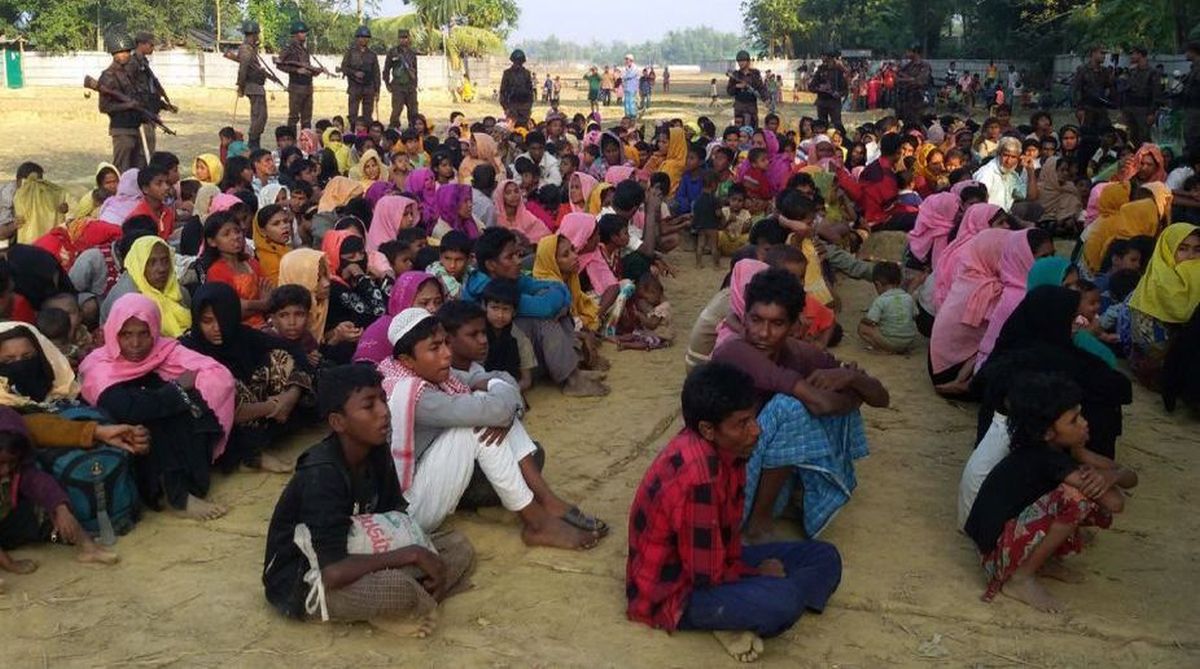Election Farce
Four years after seizing power in a coup, Myanmar’s military rulers continue their desperate yet failing bid to tighten their grip, this time by extending emergency rule under the pretext of preparing for elections.
Last month, Hunt had criticized the situation faced by the Rohingyas, after the UN mission presented a concise version of its conclusions on August 27.

Rohingya Muslims (Photo: AFP PHOTO / STR)
British Foreign Secretary Jeremy Hunt arrived in Myanmar on Wednesday on his first official visit to the country for discussions expected to include the Rohingya refugee crisis and the jailing of two Reuters reporters.
Hunt arrived in the southeast Asian country after completing a working visit to Japan. “Arrived in Burma for talks with leaders and to see humanitarian issues firsthand,” Hunt wrote on Twitter.
Advertisement
On Thursday, he was scheduled to meet with Myanmar’s de facto leader and Nobel peace laureate Aung San Suu Kyi, who, along with the Army, has been been blamed for the Rohingya crisis by the international community.
Advertisement
The visit came a day after a United Nations fact finding mission on human rights violations in Myanmar’s Kachin, Rakhine and Shan states submitted its complete report in Geneva.
The report found elements of intentional genocide in Rakhine against the Rohingya, a predominantly Muslim ethnicity and cases of crimes against humanity and war crimes in all the three states.
At least 10,000 people died and 800,000 sought refuge in neighbouring Bangladesh after the Myanmar security forces launched an offensive in August 2017 following a series of Rohingya rebel attacks on government outposts.
Last month, Hunt had criticized the situation faced by the Rohingyas, after the UN mission presented a concise version of its conclusions on August 27.
“Deeply disturbing to read UN report on crimes against Rohingya people. There must be never be a hiding place for those who commit these kinds of atrocities. Have decided to visit Burma to seek answers at the earliest opportunity,” Hunt said.
The Foreign Secretary will also discuss the recent imprisonment of two reporters working for Reuters news agency.
Wa Lone and Kyaw Soe Oo who were sentenced to seven years in prison earlier this month for violating the Official Secrets Act while investigating a massacre of Rohingyas, in a ruling that has been widely criticized by the international community.
Advertisement